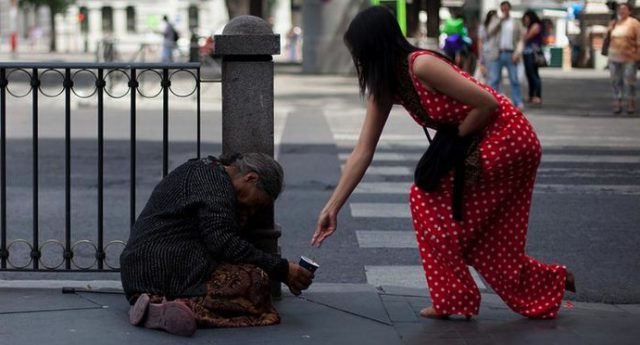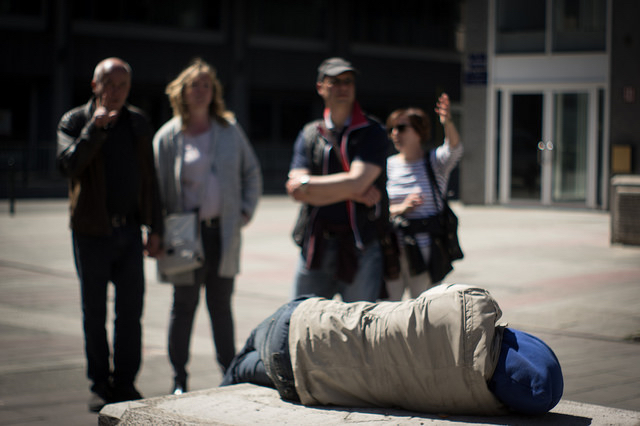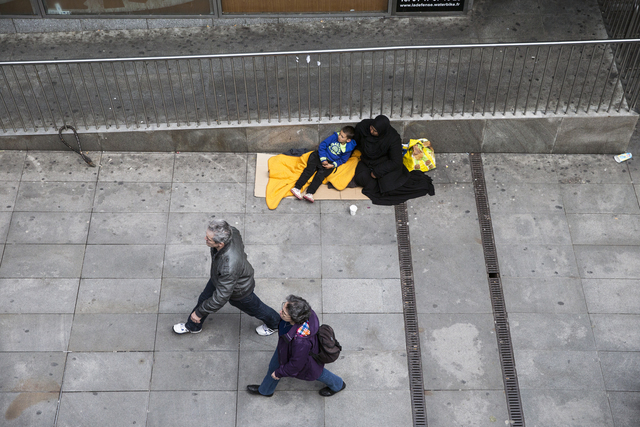GENEVA (APP) – A growing number of Europeans are living in “relative poverty”, the UN labor agency, the International Labour Organization (ILO), said on Wednesday while warning that a lack of quality jobs worldwide was threatening to undo decades of progress in poverty reduction.
The ILO also said that while poverty had declined dramatically in middle-income countries, it remained “stubbornly” high in Africa and much of Asia. Nearly two-thirds of Africans still live in extreme or moderate poverty, it said.
The ILO also found that relative poverty – defined as household income below 60 percent of the national median income – was on the rise in wealthy nations.
“In the developed world there has been an absolute increase in poverty, notably in Europe,” ILO chief Guy Ryder told reporters.

In 2012, 22 percent of inhabitants in developed countries, a full 300 million people, were living in relative poverty and more than one third of all children in wealthy nations were considered poor, according to the ILO’s 2016 World Employment Social Outlook Report.
The situation was found to be particularly dramatic in the European Union, which saw relative poverty levels remaining stable at around 16.5 percent in the years leading up to the 2008 global financial crisis.
But after the crisis, in 2012, relative poverty in the bloc swelled to 16.8 percent and by 2014 had hit 17.2 percent, the report said.
The United States also saw its relative poverty rate shoot up by nearly a percentage point from 23.8 percent in 2005 to 24.6 percent in 2012; however, it has remained stable since then, the statistics showed.
The findings are seen as bad news for poverty reduction initiatives, especially in the world’s poorer nations.
Deficit of decent employment
Today, nearly two billion people live in extreme poverty (less than $1.90 a day) or moderate poverty (less than $3.10 a day), accounting for around 36 percent of the population in emerging and developing countries, according to the ILO.

This is a significant reduction in poverty levels over the past few decades, as poverty is down from 67.2 percent in 1990.
“The world has made significant progress in the reduction of poverty,”said the ILO chief. However, he warned that the “progress [in reducing poverty] has been uneven and is fragile.”
He said that a major obstacle for poverty eradication, both in wealthy and poorer nations, is a devastating lack of decent, reliable jobs, offering job and income security, and other rights.
For example, nearly one third of people living in extreme and moderate poverty in emerging and developing countries have a job, the ILO report showed.
Pointing out that the 30 percent of the global population considered poor holds just two percent of global income, the ILO chief said it was “past time to reflect on the responsibility of rich nations and individuals in perpetuation of poverty.”















